Rural Community – Glyn Egan
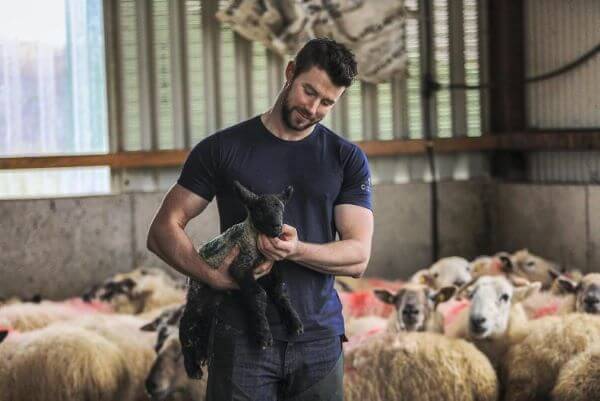
Welcome to the newest segment of our rural blog where we are featuring farmers from all kinds of backgrounds to raise their profile and help represent the incredible work that goes on in the rural community – told by none other than the farmers themselves! In this post we’ve collaborated with Glyn (@sheep_shepherd__ / 26k followers on Instagram), who is a farmer based in County Kerry, Ireland.
Age: 31
Name: Glyn Egan
Location: Kilgarvan, Co. Kerry
Q: Do you come from a family where farming is a major tradition? If so, for how many generations?
A: I was born into the family farm in Kilgarvan and so was my father and his mother before him. I am the 5th Generation farmer.
Q: Have you always been a sheep farmer?
A: Yes predominantly but I also have a few suckler cows. My father won Munster suckler farmer of the year back in 1987 and came second in Ireland overall. It was the very first year of the awards. He had a 40 strong herd back then.
Q: Are you a full or part-time farmer?
A: Full time but I am also a carpenter by trade so I work in carpentry jobs during quieter farming periods
Q: What breeds of sheep do you have?
A: We have 550 Texel/Suffolk/Belclare/cheviot Crosses, and 200 Scottish Black face.
Q: Why these breeds?
A: We chose the Scottish blackface because of it’s resilience to conditions such as weather. They are also great mothers to their lambs. We also cross Texel with these ewe’s and keep the first cross, this brings the hardiness from the scotch and also brings great finishing ability from the Texel. These ewes are kept in the lower hills that have been improved over the year’s by my father. We cross all these ewe’s with Suffolk rams and they all get sold as store lambs and some are sent to factory.

Q: How have you built up your flock?
A: We have built the flock over the year’s by keeping our own replacement’s. We keep 150 yearly but this year, it was 200 as we are trying to increase the number’s. We have a strict protocol when it comes to choosing replacement’s, they have to be a certain weight, have good length, feet and good mouth’s also. We’ve got 750 ewes, 200 ewe lambs, 24 Rams, 2 suckler cow’s and farm over 720 acres.
Q: When does lambing take place, and do you lamb indoors or outdoors?
A: From St Patricks day onwards. We mainly lamb indoors but the scotch are more resilient to weather conditions so some of these lamb outdoors when we have capacity constraints in the sheep shed.
Q: Why do you lamb in March?
A: The main reason for march lambing is due to optimising grass growth on our land. Our land is elevated so grass growth is slower than lower lying areas.
Q: Do you have any measures to achieve a compact lambing period?
A: We have used the teaser lambing system the last two years. This is where we introduce a teaser Ram 14 days before the fertile Rams go to the Ewes and most sheep lamb within the 20 days. We have found this to be the best method as other years it dragged on for too long.
Q: What do you do with progeny?
A: We inspect all our lambs when we take them away from the ewes to dry off. We weigh the heaviest ram lambs and anything over 38kgs get put into a separate group to the lighter ram lambs. The heavier one’s get sent to the factory after a few weeks in grass and the lighter ones go to Kenmare mart over the next month or two and would get some meal when grass is getting scarce, as it would be needed for the next mating season. We keep our own ewe lambs every year, we try to keep the best lambs in the flock and the rest would get sold at home to farmers or nearby Kenmare mart.
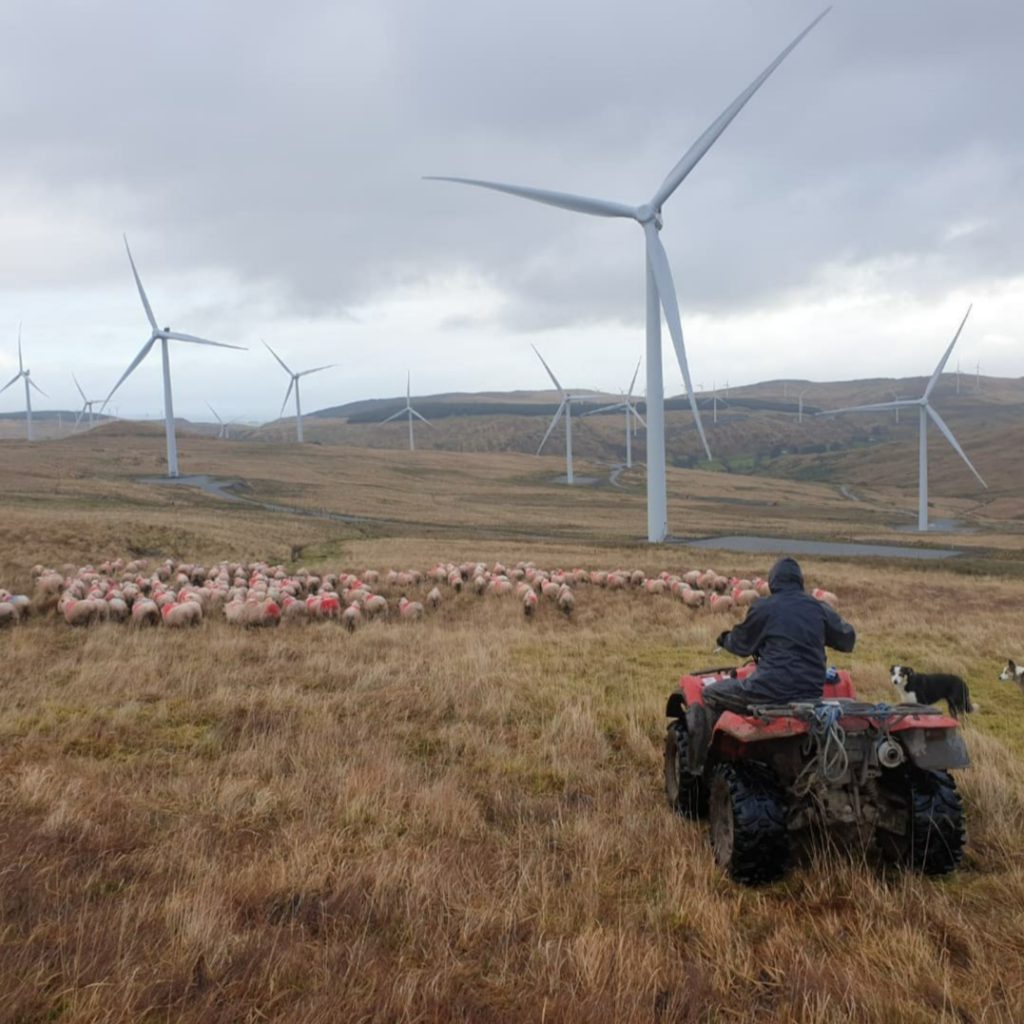
Q: What type of sheep do you try to breed?
A: We strive to breed good quality lambs that finish quick off grass. This is why we choose Suffolk as our terminal sire to cross with our ewes. They finish quick and there is a good market for the ewe lambs also. We try to get 5 star rams if possible. Problem is he can have all the star’s in the world but if he doesn’t have good length and size, it’s not for us.What is the most enjoyable aspect of farming for you? Being outdoors in the fresh air amongst nature at its finest,There is nothing better than a fine spring day when lambing is underway and things are going your’re way. It puts a big smile on youre face and spring in your step.
Q: What do you find challenging?
A: The most challenging time is lambing time, long hours, bad cold weather which can slow grass growth and mean housing anmials longer and which confines space and increases cost.
Q: What area of agriculture are you most passionate about and why?
A: I’m most passionate about sheep breeding, breeding good quality ewe lambs and improving the flock. If you don’t put good quality ewes back into you’re flock, you’re wasting your time. I’m also passionate about improving poor grassland areas in the mountain. My father has been at this for years and I have continued this tradition – it is locally known as John Egan’s Green mountain.What are your responsibilities on the farm? End to end farm management, Making sure everything run’s smoothly.
Q: What does it take to be a successful sheep farmer?
A: To be a good sheep farmer, You have to have a love for it otherwise you’re wasting your time. You get out of it what you put in. Also an understanding that there will be tough days but the good days out do the bad.
Q: What advice would you give to aspiring sheep farmers?
A: Strive to build up or improve your flock Slowly don’t rush thing’s, As thing’s can go wrong very fast, seek advice from the right people and know when to ask for help. Be willing to spend and buy from reliable farmer’s.
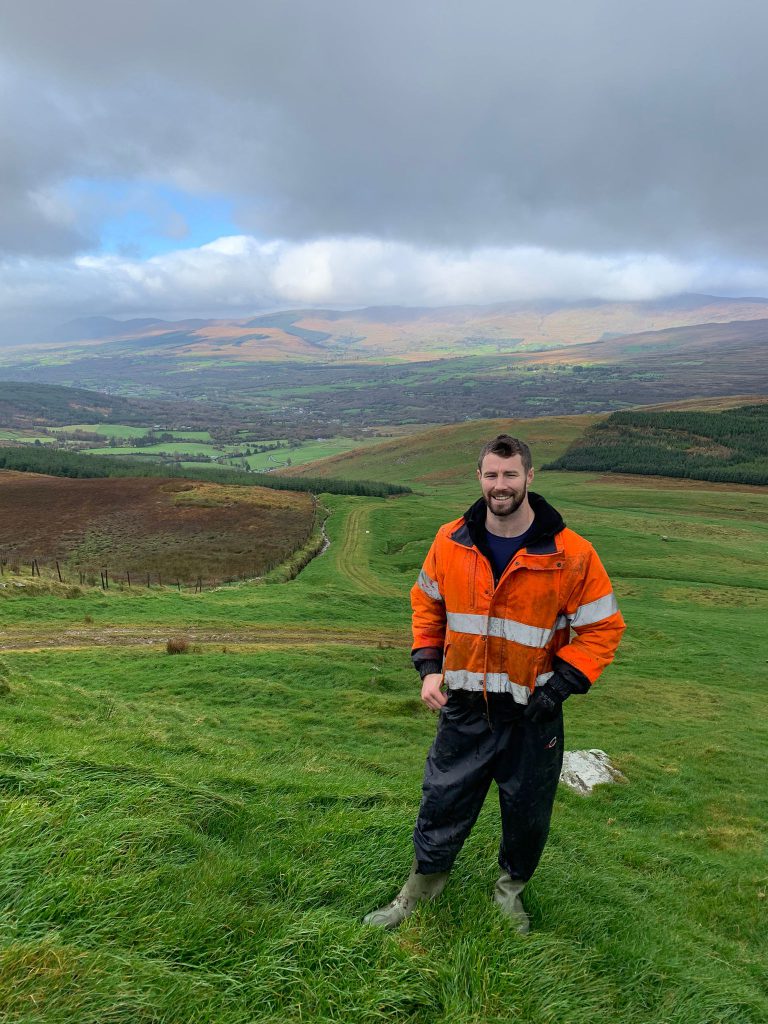
Q: If you could turn back the clock, would you do anything differently?
A: If I was to do anything different it would have been to start using mineral doses long before we started. Since I came back from Australia we started using Natural Stockcare products. We give the ewes Stockline with copper and since we started using it our scanning % went from 1.49 lambs per ewe to 1.74 this year. So I would definitely recommend any farmer who is not dosing sheep pre-mating to do so – it definitely pays off.
Q: As a sheep breeder, what has been your highlight since you embarked on this venture?
A: The price of lambs in 2021, and hopefully it will continue as fertiliser and feeds costs have increased significantly.
Q: What are your plans for the flock for the future?
A: In five year’s time I hope to have the flock increased from 750 to 950 – 1000 and also have pedigree flock on the farm. There is something about the Blueface Leicester I like and I would love to be breeding my own mules.
Q: Is sheep farming a viable business?
A: Sheep farming is viable to extent, To make a living out of it you would need to be getting good direct payments, have big numbers, and own the land in my opinion. It needs to be well managed and have a good return i.e. rearing as many lambs as possible and managing costs correctly. There is a lot of hidden costs associated with farming and as we saw in the past few month’s fertiliser, feed ,diesel etc. have all sky rocketed.
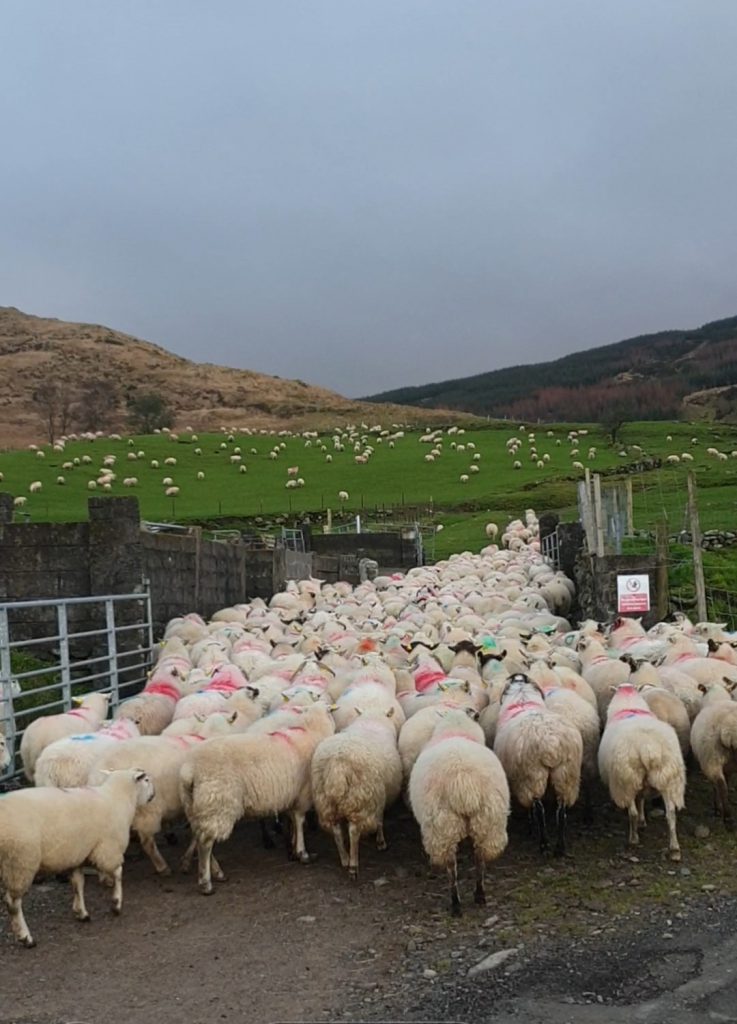
Q: Do you have cattle or any other livestock?
We have only two suckler cow’s at present, my father ran a 40 strong herd back in the 90’s but we are more focused on sheep now as it is suiting our system.
Q: Can you sum up your life in agriculture, reflecting on the journey you have undertaken to date?
A: My journey so far has been great and I’m loving it. I’m learning new things every day and no day is the same. My father is a great help and as he says himself “a farmer never retires” so he always looks after the place when I’m away. I lived in Sydney for 5 years and worked as a carpenter but I’ve been home now for three year’s and all focus is on the farm and running a successful business.
Q: What advice would you give to aspiring sheep farmers?
A: First of all, you have to have a genuine interest and enjoy working with sheep. Do your homework and get advice from the right people who have experience. Be willing to spend if you want to establish your flock and grow it right – having correct housing, fencing and penning facilities all cost money. But if you have a keen interest stick at it and do it right. Finally, I’d advise to anyone to keep good records. My father has kept a diary every year since 1968 and I have done the same since I started farming. It keeps the mind at ease and all the details/records from previous years is there so there is no confusion with the coming year to go off. It also reminds you of what needs to be done and not to make the same mistakes that you have done in previous years. We find it great and it’s our go to book.
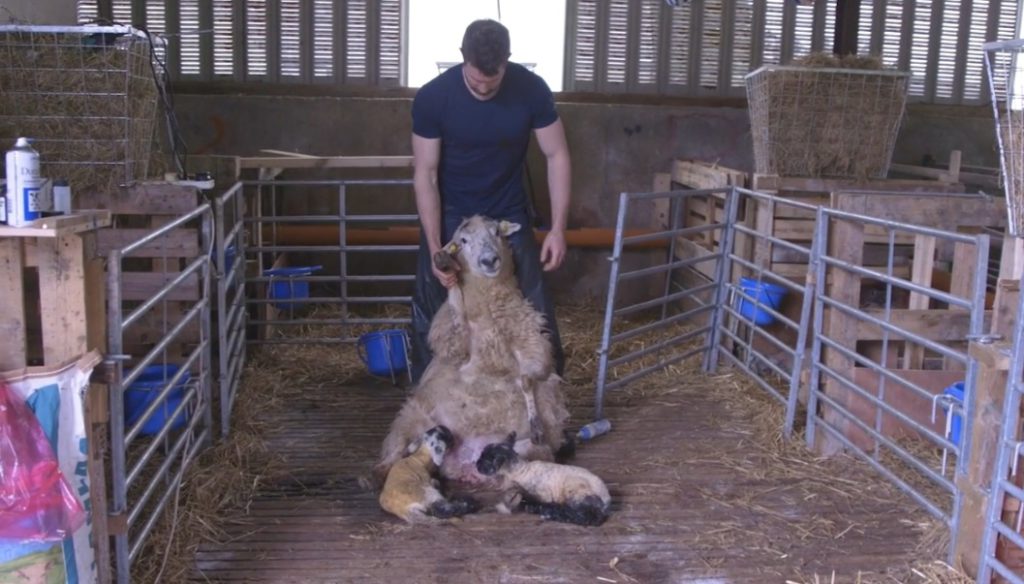
If you’re a farmer and you’d like to contribute in our campaign to raise awareness for the incredible work in British agriculture, please drop us a DM on Instagram – @aplanrural







